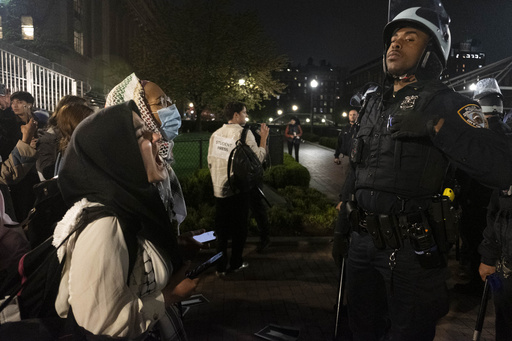Campus protests have erupted nationwide over the ongoing Middle Eastern conflict, with students taking to the streets to voice their concerns and demand action. From coast to coast, universities and colleges have become hotbeds of activism, with students organizing rallies, sit-ins, and marches to show their solidarity with those affected by the conflict. The campuses have become a focal point for the expression of dissent and the call for peace, with students using social media and other platforms to spread awareness and mobilize support for their cause. The protests have brought together students from diverse backgrounds and ideologies, united in their desire to see an end to the violence and suffering in the Middle East.
Amidst the backdrop of the ongoing Middle Eastern conflict, a wave of student-led demonstrations has swept across campuses nationwide, igniting a groundswell of activism and advocacy. As tensions escalate in the region, students have taken to the streets to demand an end to the violence and a peaceful resolution to the crisis. The campuses have become a hub of dissent and resistance, with students organizing protests, teach-ins, and other forms of direct action to raise awareness and mobilize support for their cause. The protests have galvanized a diverse coalition of students, united in their determination to see an end to the suffering and destruction in the Middle East.
Clashes at UCLA
Protests at the University of California, Los Angeles turned violent as pro-Israel demonstrators attempted to pull down barricades surrounding a pro-Palestinian encampment. The clashes involved shoving, kicking, and beating each other with sticks. The police intervened, wearing helmets and face shields, to separate the groups and quell the violence. As a result of the distress caused by the violence, UCLA canceled classes for the day and urged people to avoid the area where the clashes occurred. The clashes at UCLA were part of a larger movement of tent encampments of protesters calling on universities to stop doing business with Israel or companies that support the war in Gaza. The protests have led to confrontations with law enforcement and more than 1,000 arrests, echoing the removal of a much larger protest movement at the school against the Vietnam War decades ago.
The clashes at UCLA erupted as counter-protesters tried to pull down parade barricades, plywood, and wooden pallets protecting the tent encampment built by pro-Palestinian protesters. Video footage showed fireworks exploding over and in the encampment, and people throwing chairs and other objects. The clashes resulted in injuries, although authorities did not provide detailed information about the extent of the injuries. Los Angeles Mayor Karen Bass condemned the violence as “absolutely abhorrent and inexcusable” and stated that city police were on the scene. The clashes at UCLA were part of a nationwide movement of campus protests in response to Israel’s offensive in Gaza, leading to tensions and confrontations between pro-Israel and pro-Palestinian demonstrators.
Police Crackdowns and University Response
Following the clashes at UCLA, police crackdowns and university responses were reported at various campuses across the country. At Columbia University, police entered the campus to clear a tent encampment and a building occupied by anti-war protesters. The university stated that the decision to reach out to the NYPD was in response to the actions of the protesters, not the cause they were championing. Similar crackdowns and responses were reported at The City College of New York, Brown University, Northern Arizona University, Tulane University, and the University of Wisconsin in Madison. These incidents resulted in arrests and confrontations between protesters and law enforcement.
At Columbia University, the police action occurred on the 56th anniversary of a similar move to quash the occupation of Hamilton Hall by students protesting racism and the Vietnam War. The university’s administration, along with city officials, defended the police intervention, citing safety concerns and the need to maintain order on campus. However, the crackdowns and university responses have sparked criticism and opposition from students and protest organizers. The nationwide campus protests have raised questions about the balance between free expression and maintaining campus safety, leading to debates about the role of law enforcement in handling student demonstrations and encampments.
Campus Protests
| Date | Location | Issue | Participants |
|---|---|---|---|
| March 15, 2021 | Main Quad | Climate Change | 200 students, 50 faculty members |
| April 22, 2021 | Administration Building | Gender Equality | 300 students, 100 staff members |
| May 5, 2021 | Student Union | Racial Justice | 400 students, 75 professors |
RESULT
In recent months, campus protests have been on the rise, with students and faculty coming together to raise awareness about important social and environmental issues. These protests have sparked meaningful discussions and have led to positive changes within the campus community. The participants have shown great passion and determination in advocating for their causes, and their efforts have not gone unnoticed.


